| Musical Inspiration in Times of TroubleAn Interview with HMC Member and Composer, Dennis Clements |
HMC's final virtual performance for the 2020-2021 season, composed by member Dennis Clements, contains both a plea to God to extend peace to us and an exhortation to extend our peace to other. Dona Nobis Pacem Tuam (Give Us Your Peace) beautifully captures the idea that despite our current times of trouble, peace is always worth seeking and always worth giving.Clements originally conceived the inspiration for this piece in 2018 after hearing the music of composer Morten Lauridsen. Having always wanted to compose a choral piece at the collegiate level, he began seeking a text that would best reflect the sound he wanted to achieve.“I chose Latin as the language because the purity of the vowels and the beauty of the tones lend themselves to the style of music I wanted for this piece,” Clements says.His growing concern about tribalism and lack of unity within our society planted the seed for what would become the text. “I found myself desiring peace at a greater level and I wanted others to desire it too.”After sketching out some concepts in English, Clements began searching online translation tools, but the results weren’t consistent. He knew he would never feel confident with the text using only these methods. He reached out to classics and Latin experts in the area and settled upon a translation provided to him by Catherine Dunar, a Latin teacher at Randolph School.The composition process for “Dona Nobis” differed from his usual process in that the text came before the music to provide the structure. He wanted the melody line to reflect the words of the text. For example, in the beginning, Clements uses a descending melody line to reflect God’s peace coming down to us. In the middle, the rhythms and harmonies punch and clash, portraying a strident tone when peace is absent. At the end, the melody line ascends to reflect our worship and our extension of peace to others rising up to God.“At the beginning of the piece, I was experimenting with just vowels, almost as if the choir is warming up to sing. Even though each vocal part is singing a different vowel, the sound eventually becomes more unified – a sort of unity in the midst of diversity.”Clements singularly produced the virtual recording, a time intensive project that took well over 100 hours to complete. First, he created a computerized audio version of the music and a scrolling video of the music using computer software. Realizing the need for demo and rehearsal tracks, he hired Matt Curtis, formerly a member of Chanticleer, to produce these, which were uploaded to YouTube for the singers. Once the singers submitted their individual recordings, Clements separated the audio from the video in order to mix the audio and correct rhythm and pitch discrepancies. While he uses professional mixing software, he leans toward limiting the use of it as much as possible.Clements explains, “Too much correction starts to not sound human. There is a fine line to allow for unique vocal contributions while correcting what we can.”Once the audio was mixed to his satisfaction, Clements laid it into the video software and loaded in all the videos submitted by the singers. As with the music, the video was structured to highlight the theme of the piece.“I did want to have in the opening the fading in and out of the voice parts, building up the theme, with the parts in and out until everyone is in, all singing together - this idea of individuals coming together and forming a whole.”One important concept stood out to Clements throughout this editing process.Clements reflects, “The more submissions I have, the less editing I have to do. Because we blend. We fill in for one another’s weaknesses, even when we aren’t singing together physically. It’s a very powerful image of how choral singing is a great example of this.”Despite the struggles for choirs during Covid, Clements agrees that many lessons were learned. As the choir director for a local church congregation, Clements and his choir performed over 50 virtual recordings. Aside from the steep learning curve of using technology, singers had to hear themselves on the individual recordings and were able to make realistic assessments of their vocal weaknesses and strategies to improve. Once his choir was able to sing together again, Clements noted great improvement in their sound and technique.Another lesson learned is that we can never underestimate the value of choir for building our communities.“Before Covid, I was always a believer of the idea that when a choir sings, their hearts become synchronous. This powerful thing, this sense of belonging, has been missing during the pandemic,” advocates Clements. “When choirs do get back together, they will have such a joyous time.”Clements is grateful to HMC and Dr. Patricia Hacker for giving him the opportunity to have his piece performed. He is also grateful to our patrons and supporters for listening.“Throughout history, the arts have required patrons. In an age where we no longer have nobility, the organizations have become these patrons. I am sure I would not be doing what I am doing if there weren’t people willing to give me the chance to write for them,” Clements acknowledges.As HMC moves forward with a live and in-person 2021-2022 season, we are grateful to you, our audience, for sticking with us through the drought of Covid, and giving us the chance to sing for you again.The Huntsville Master Chorale performs Dennis Clements' Dona Nobis Pacem.
| Dona nobis pacem tuamTemporibus tribulationis.Cum hic mundus scinditur,Adjuva nos ut illa pax vera simusVera pax tuaDona, Domine, pacem tuam nobis. |
Give us your peaceDuring times of trouble.When this world is torn apart,Help us to be that true peaceWhich is yours.Give us, O Lord, your peace |
